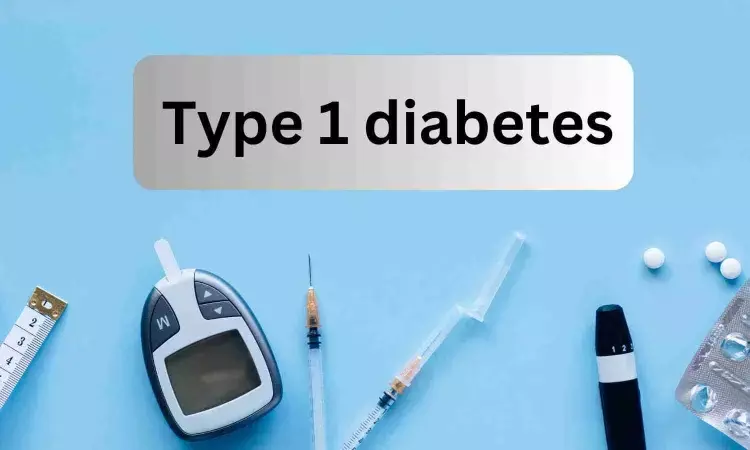- Home
- Medical news & Guidelines
- Anesthesiology
- Cardiology and CTVS
- Critical Care
- Dentistry
- Dermatology
- Diabetes and Endocrinology
- ENT
- Gastroenterology
- Medicine
- Nephrology
- Neurology
- Obstretics-Gynaecology
- Oncology
- Ophthalmology
- Orthopaedics
- Pediatrics-Neonatology
- Psychiatry
- Pulmonology
- Radiology
- Surgery
- Urology
- Laboratory Medicine
- Diet
- Nursing
- Paramedical
- Physiotherapy
- Health news
- Fact Check
- Bone Health Fact Check
- Brain Health Fact Check
- Cancer Related Fact Check
- Child Care Fact Check
- Dental and oral health fact check
- Diabetes and metabolic health fact check
- Diet and Nutrition Fact Check
- Eye and ENT Care Fact Check
- Fitness fact check
- Gut health fact check
- Heart health fact check
- Kidney health fact check
- Medical education fact check
- Men's health fact check
- Respiratory fact check
- Skin and hair care fact check
- Vaccine and Immunization fact check
- Women's health fact check
- AYUSH
- State News
- Andaman and Nicobar Islands
- Andhra Pradesh
- Arunachal Pradesh
- Assam
- Bihar
- Chandigarh
- Chattisgarh
- Dadra and Nagar Haveli
- Daman and Diu
- Delhi
- Goa
- Gujarat
- Haryana
- Himachal Pradesh
- Jammu & Kashmir
- Jharkhand
- Karnataka
- Kerala
- Ladakh
- Lakshadweep
- Madhya Pradesh
- Maharashtra
- Manipur
- Meghalaya
- Mizoram
- Nagaland
- Odisha
- Puducherry
- Punjab
- Rajasthan
- Sikkim
- Tamil Nadu
- Telangana
- Tripura
- Uttar Pradesh
- Uttrakhand
- West Bengal
- Medical Education
- Industry
Hybrid closed-loop insulin therapy prevents low night-time blood glucose levels among breastfeeding mothers with type 1 diabetes: Study

Hybrid closed-loop insulin therapy prevents low night-time blood glucose levels among breastfeeding mothers with type 1 diabetes suggests a study published in the Diabetologia.
This study aimed to describe the relationship between breastfeeding episodes and maternal glucose levels, and to assess whether this differs with closed-loop vs open-loop (sensor-augmented pump) insulin therapy. Infant-feeding diaries were collected at 6 weeks, 12 weeks and 24 weeks postpartum in the trial of postpartum closed-loop use in 18 women with type 1 diabetes.
Continuous glucose monitoring (CGM) data were used to identify maternal glucose patterns within the 3 h of breastfeeding episodes. Generalised mixed models adjusted for breastfeeding episodes in the same woman, repeat breastfeeding episodes, carbohydrate intake, infant age at time of feeding and early pregnancy HbA1c. Results: CGM glucose remained above 3.9 mmol/l in the 3 h post-breastfeeding for 93% (397/427) of breastfeeding episodes.
There was an overall decrease in glucose at nighttime within 3 h of breastfeeding (1.1 mmol l−1 h−1 decrease on average; p=0.009). A decrease in nighttime glucose was observed with open-loop therapy (1.2 ± 0.5 mmol/l) but was blunted with closed-loop therapy (0.4 ± 0.3 mmol/l; p<0.01, open-loop vs closed-loop). There is a small decrease in glucose after nighttime breastfeeding that usually does not result in maternal hypoglycaemia; this appears to be blunted with the use of closed-loop therapy.
Reference:
Donovan, L.E., Bell, R.C., Feig, D.S. et al. Glycaemic patterns during breastfeeding with postpartum use of closed-loop insulin delivery in women with type 1 diabetes. Diabetologia 67, 2154–2159 (2024). https://doi.org/10.1007/s00125-024-06227-z
Dr. Shravani Dali has completed her BDS from Pravara institute of medical sciences, loni. Following which she extensively worked in the healthcare sector for 2+ years. She has been actively involved in writing blogs in field of health and wellness. Currently she is pursuing her Masters of public health-health administration from Tata institute of social sciences. She can be contacted at editorial@medicaldialogues.in.
Dr Kamal Kant Kohli-MBBS, DTCD- a chest specialist with more than 30 years of practice and a flair for writing clinical articles, Dr Kamal Kant Kohli joined Medical Dialogues as a Chief Editor of Medical News. Besides writing articles, as an editor, he proofreads and verifies all the medical content published on Medical Dialogues including those coming from journals, studies,medical conferences,guidelines etc. Email: drkohli@medicaldialogues.in. Contact no. 011-43720751


